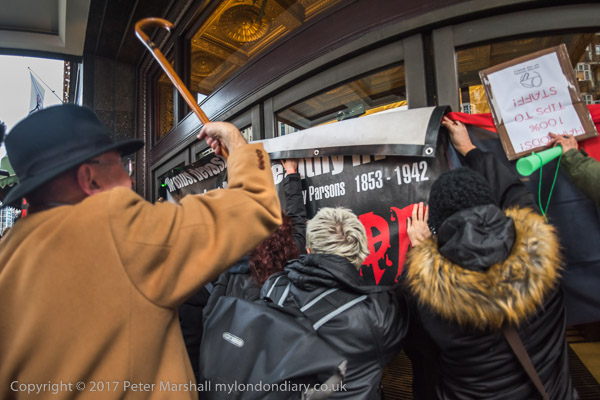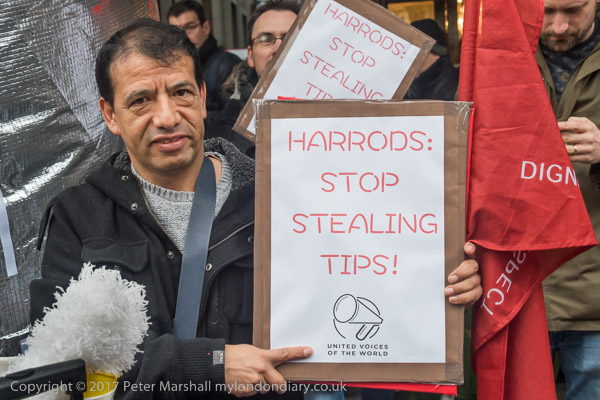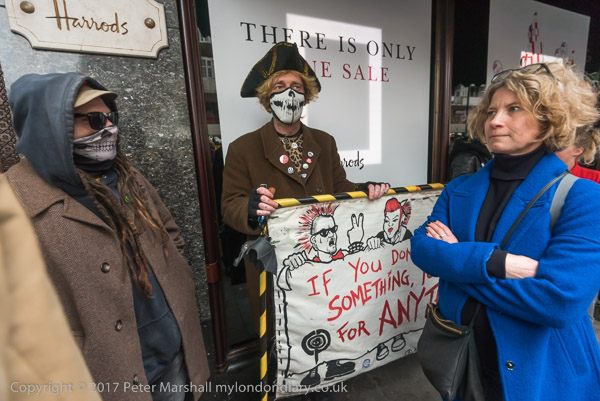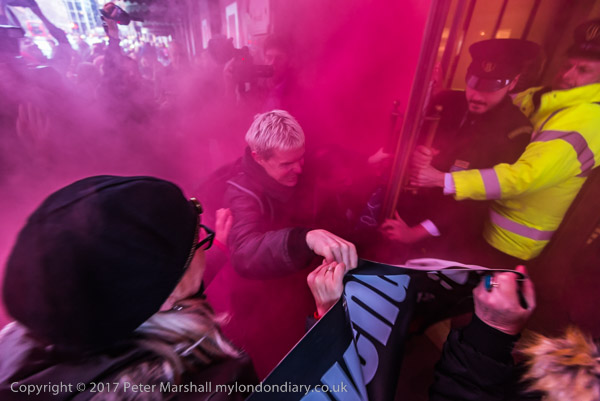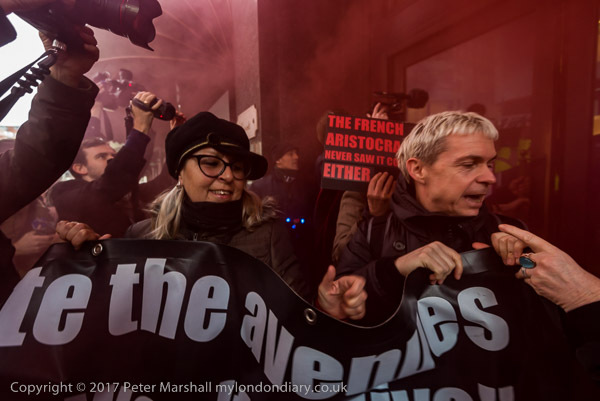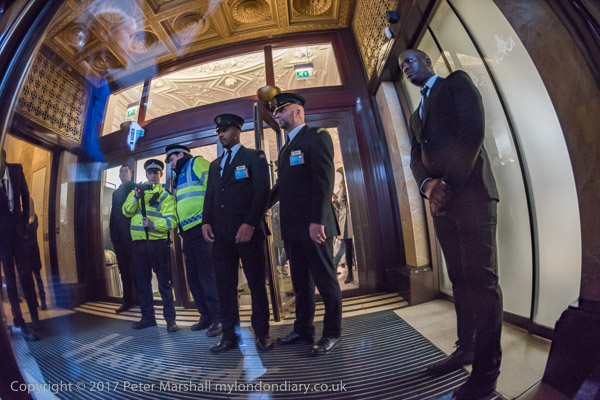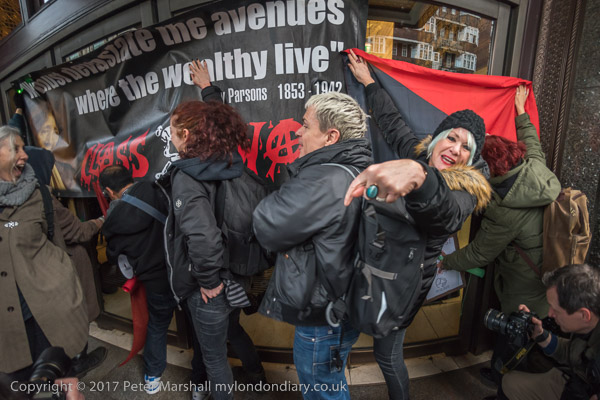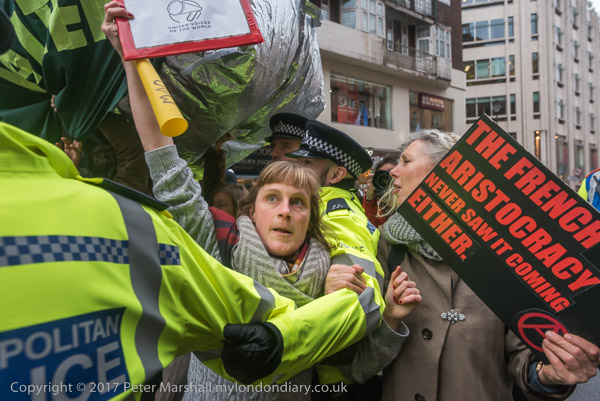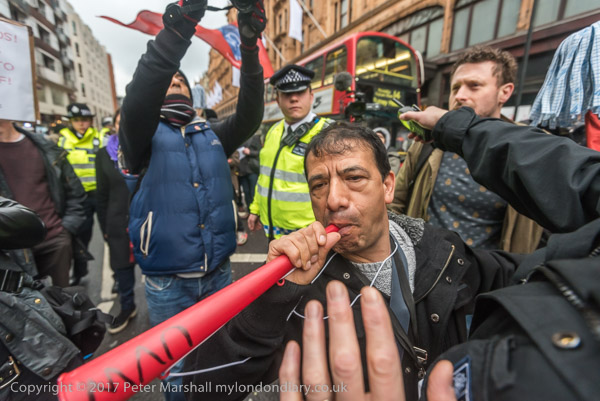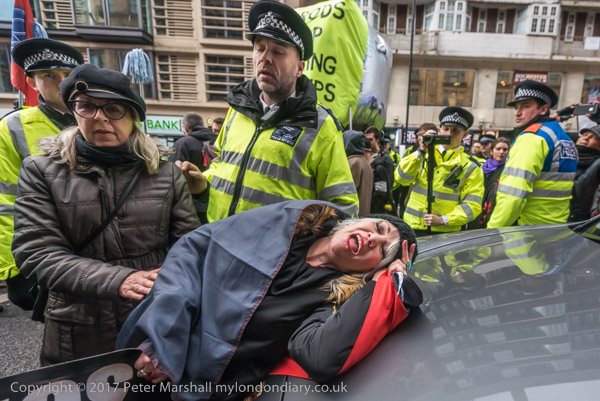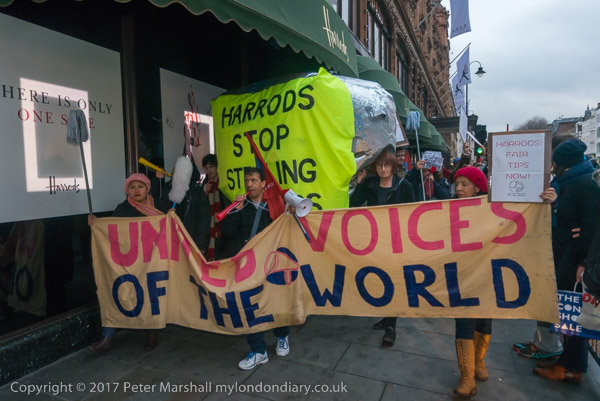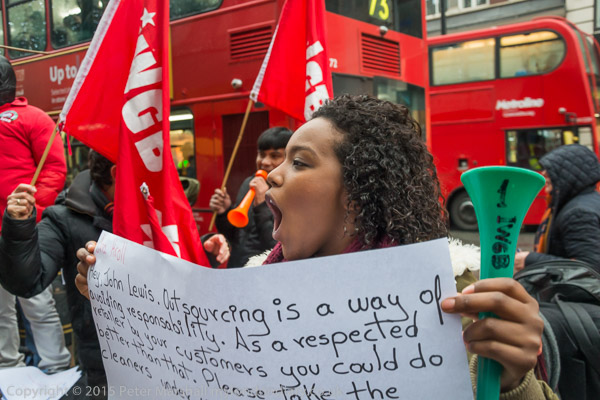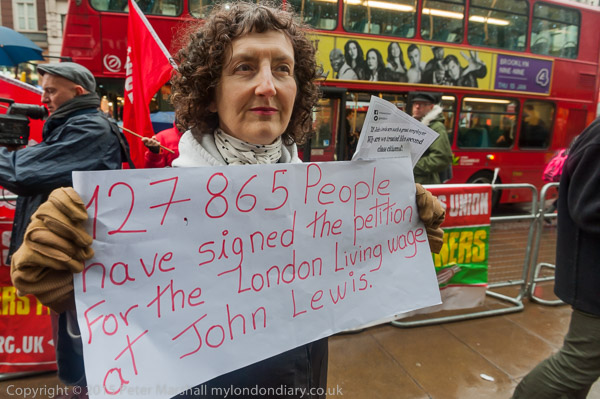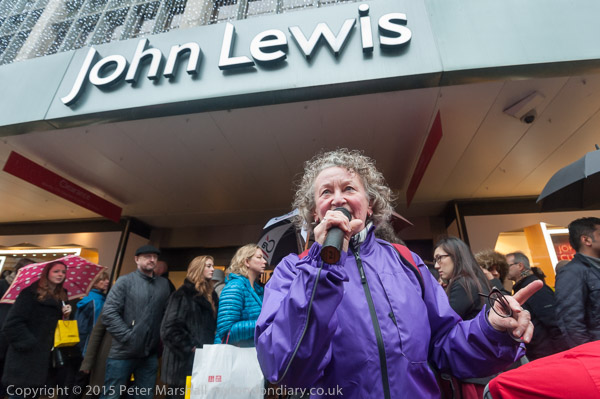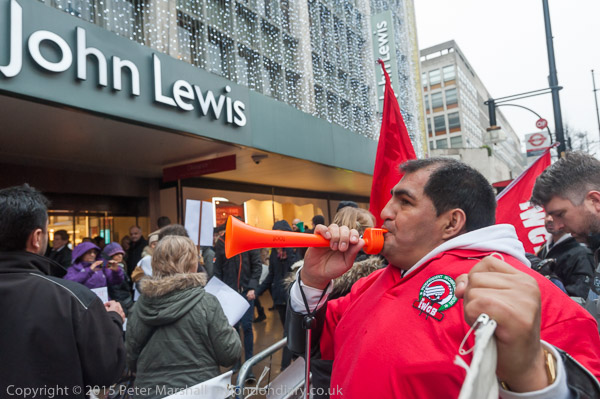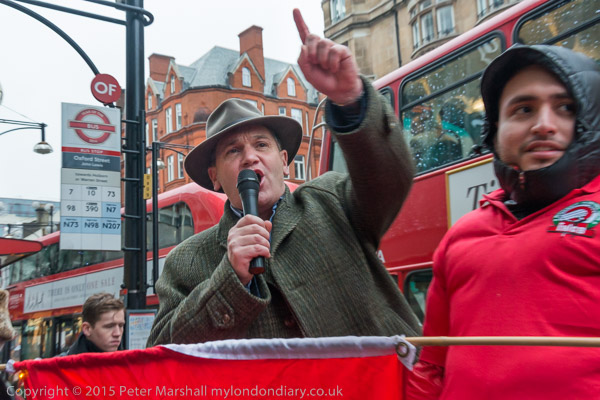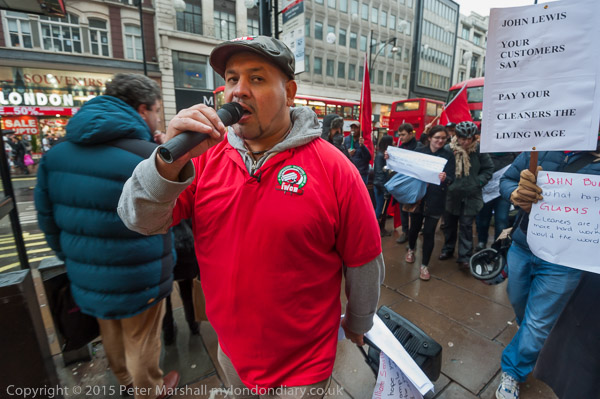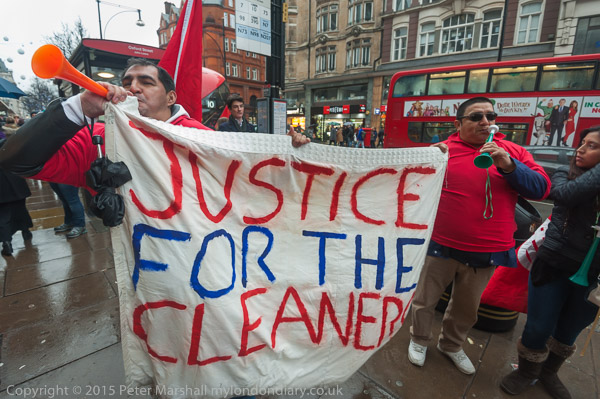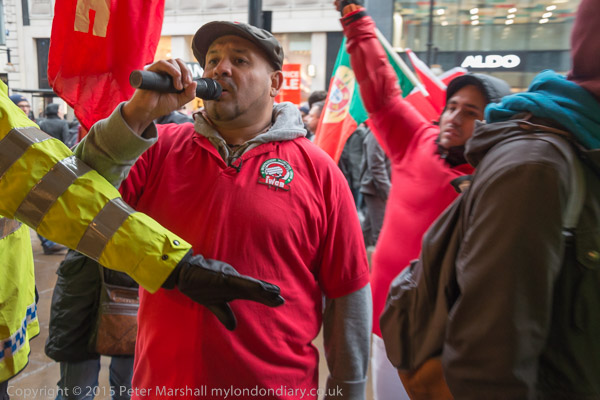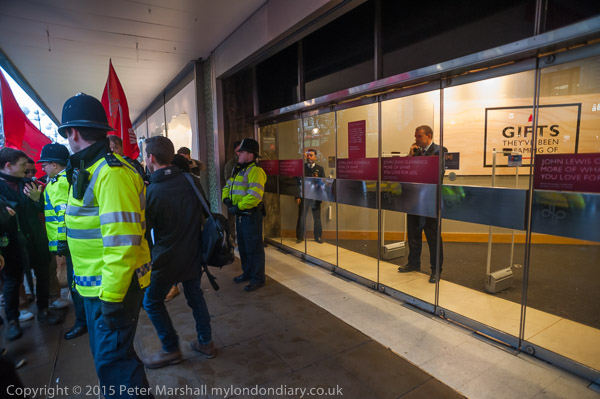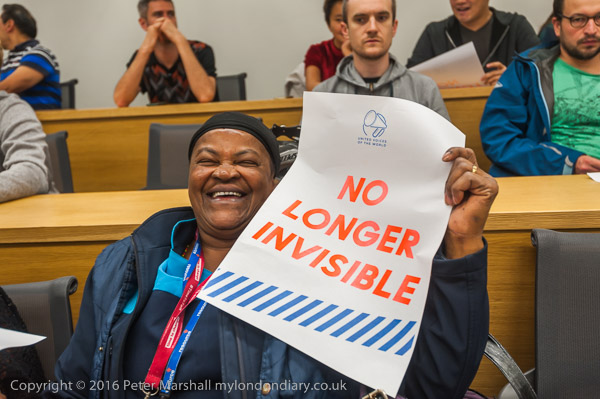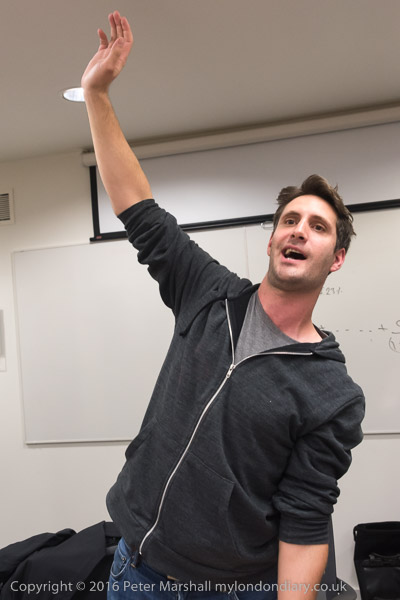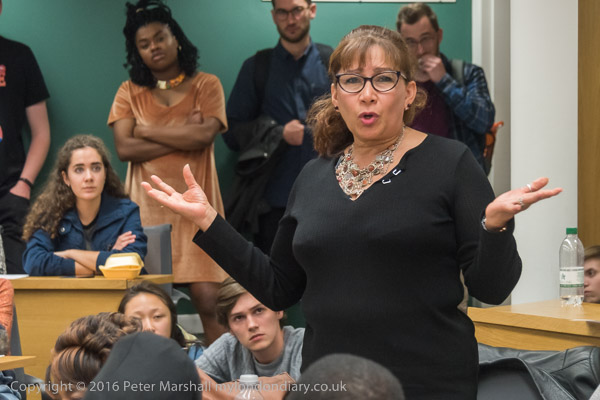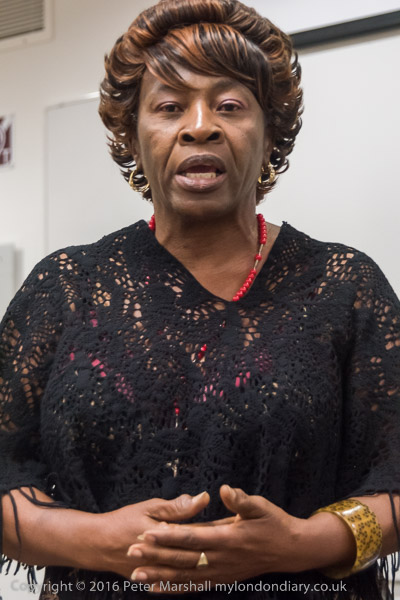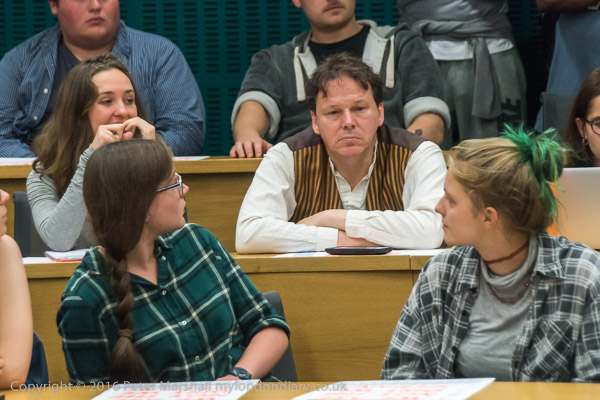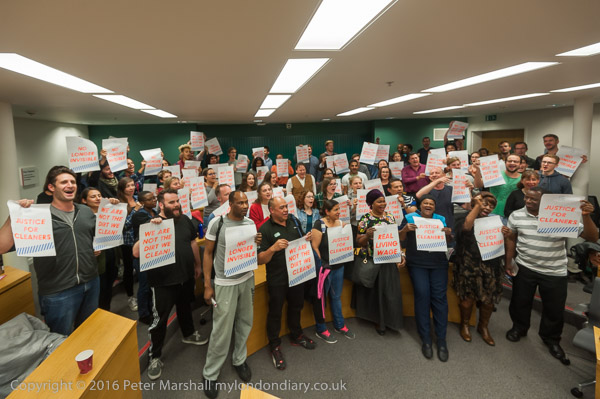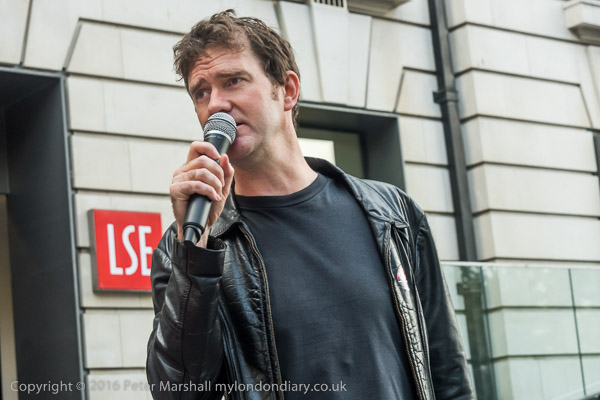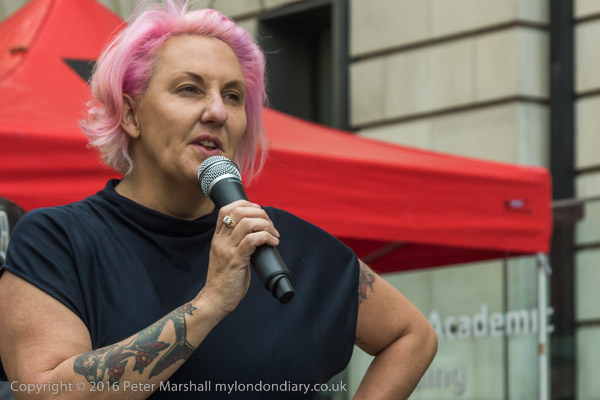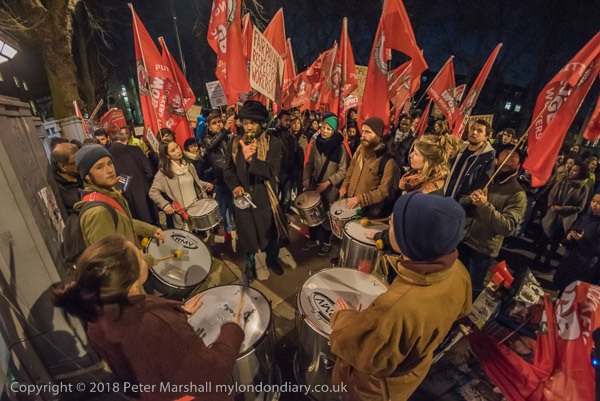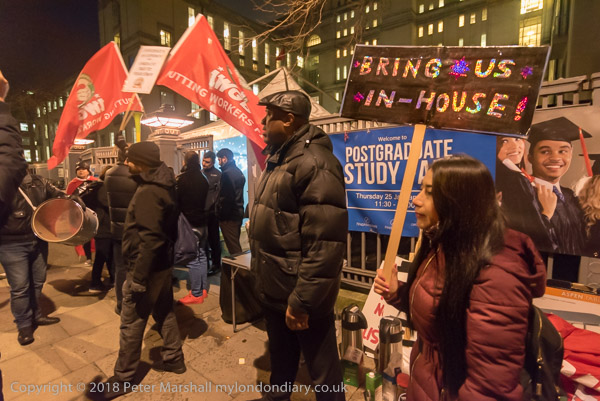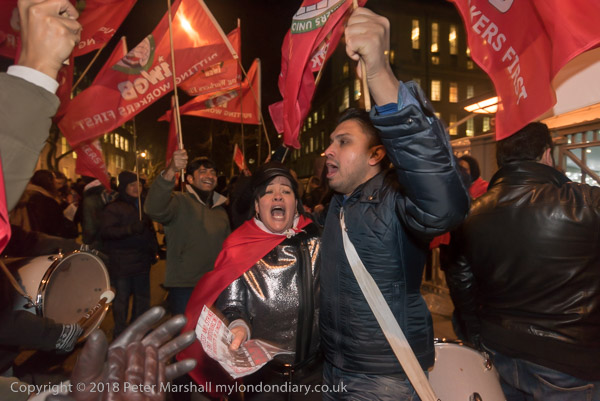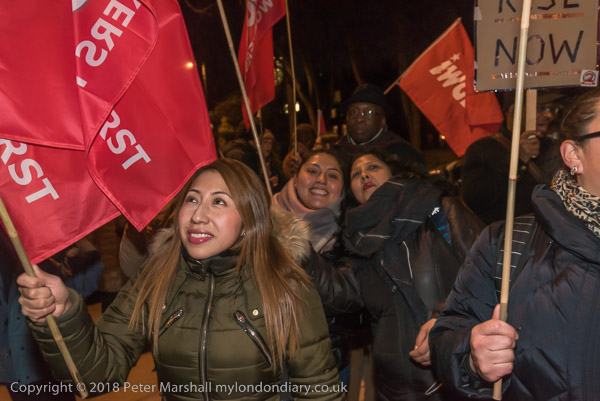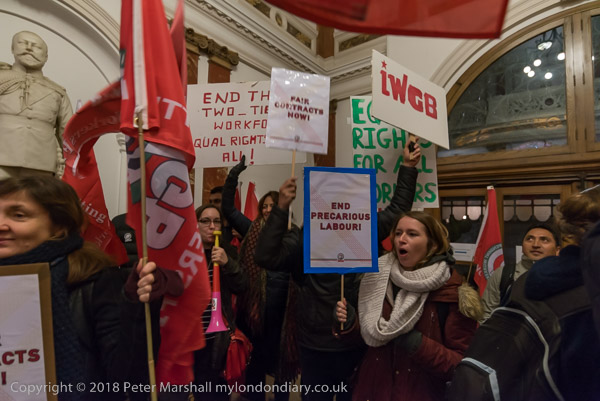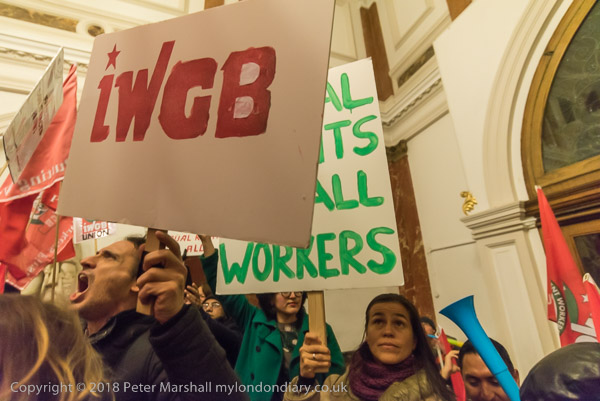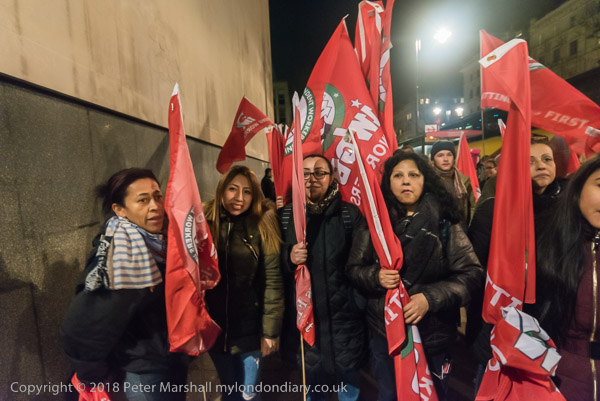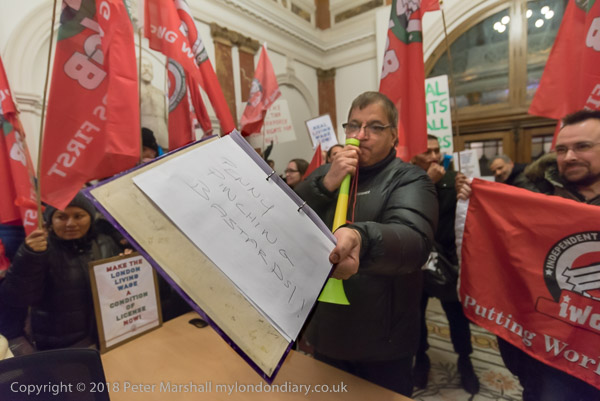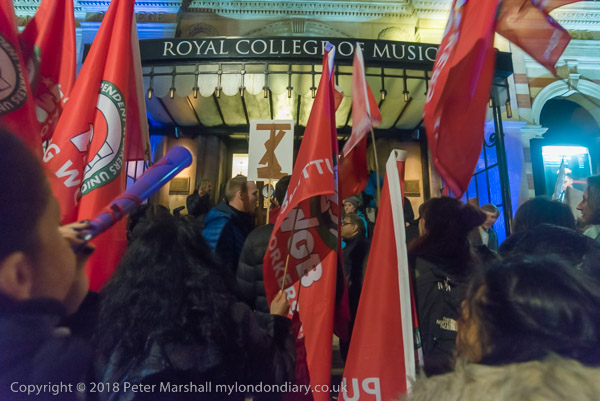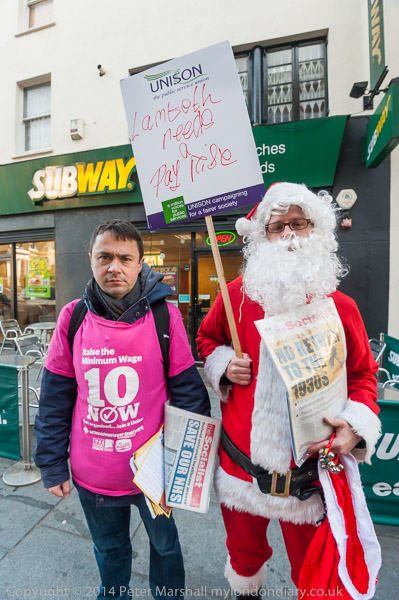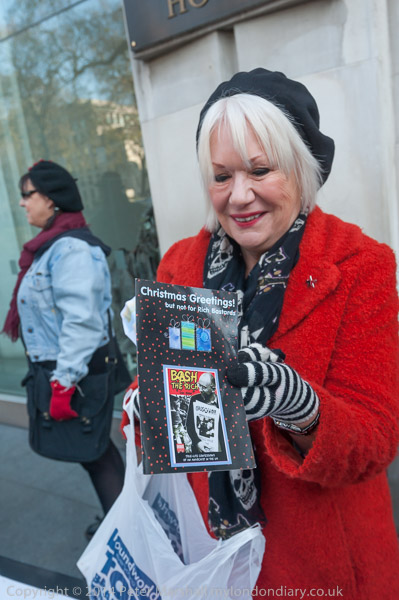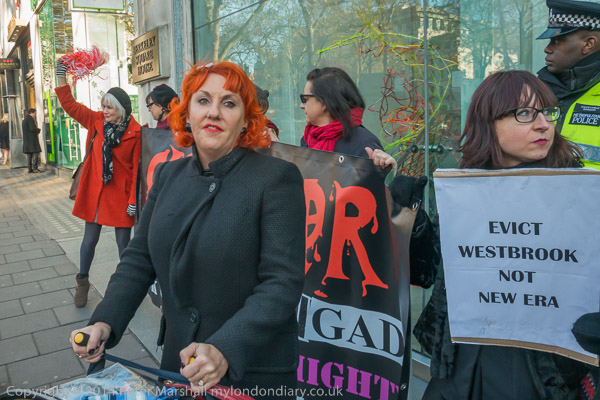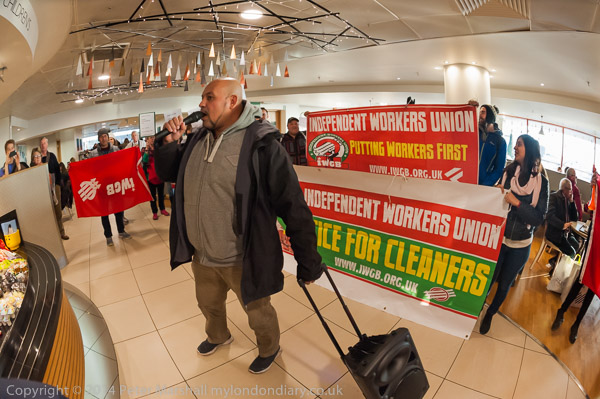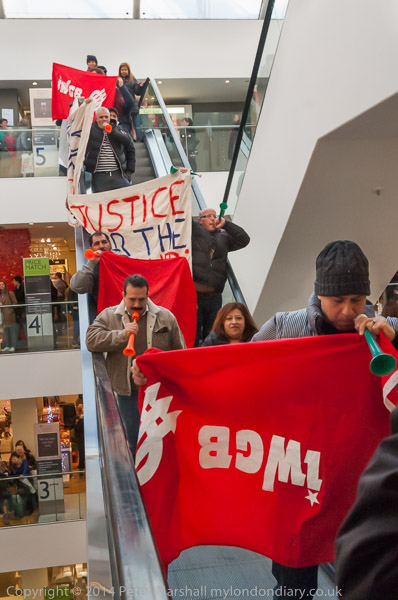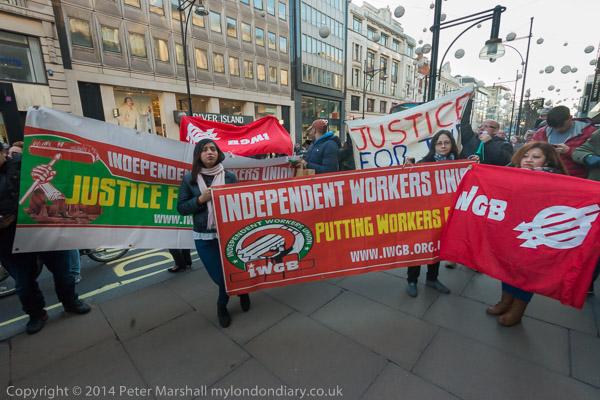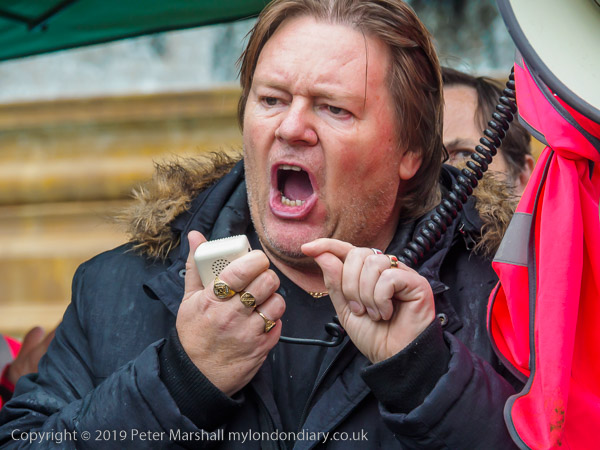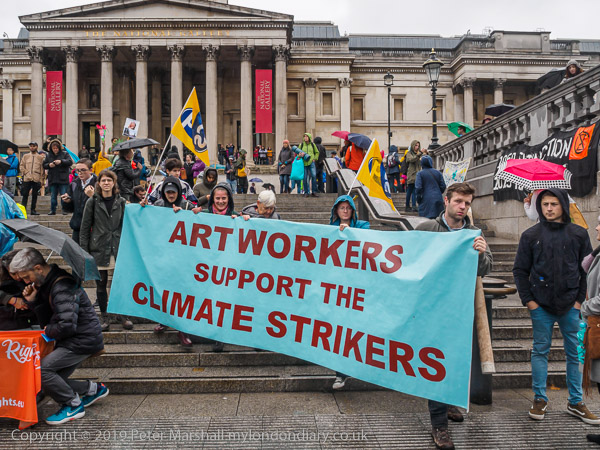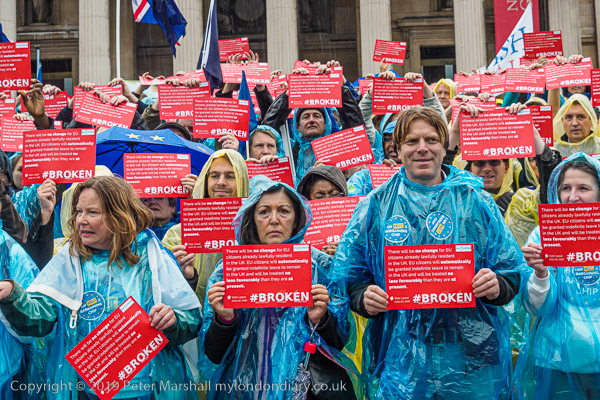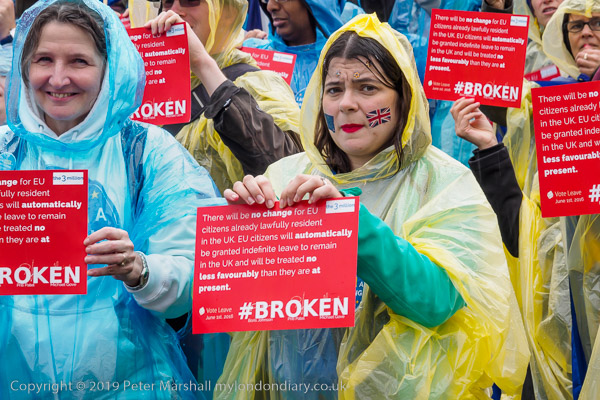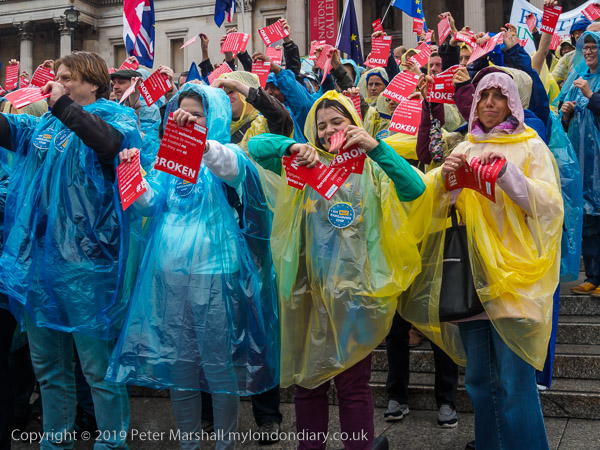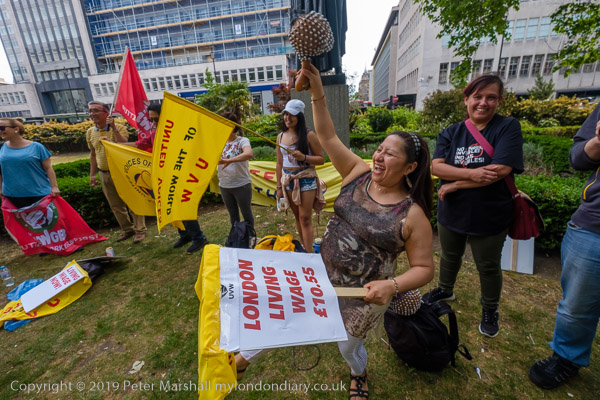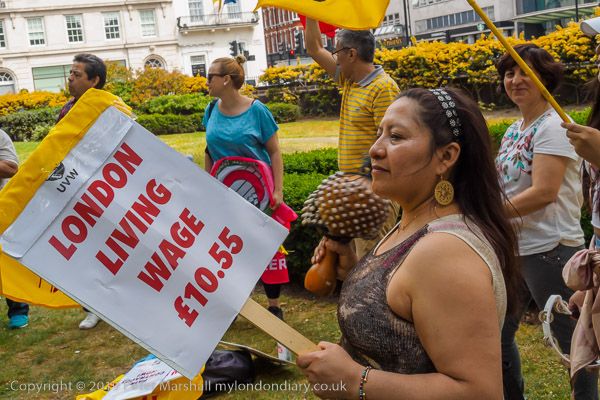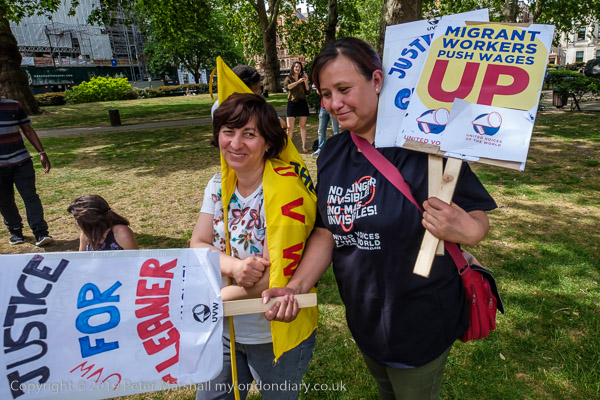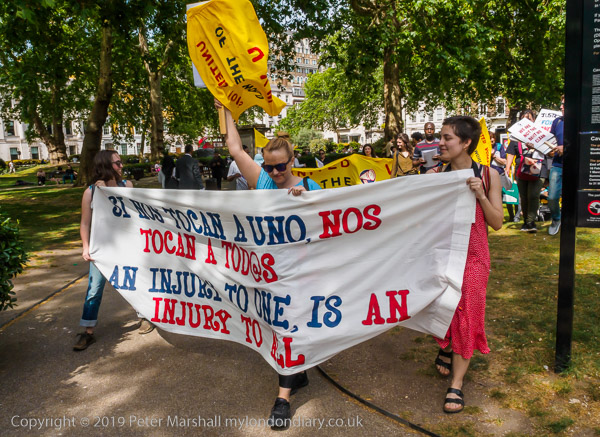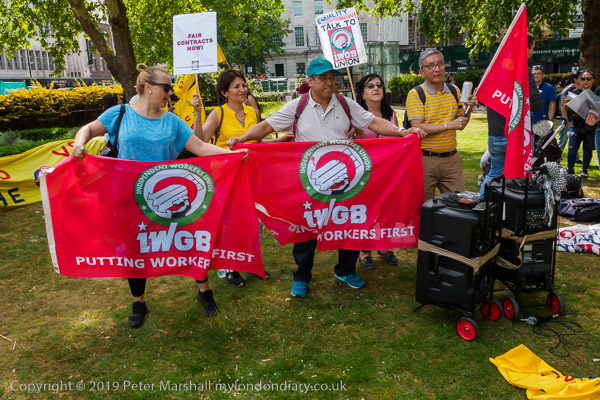Gitmo, London Uni, Ethiopia, Israel & Ukraine Miners – Protests in London on Friday 23rd May 2014 included those against the continuing illegal detentions in Guantánamo, redundancies for support workers at London University, killing and human rights abuses in Ethiopia and those supporting hunger strikes in Israeli jails and strikes by miners in Ukraine.
Obama keep your promises – Trafalgar Square
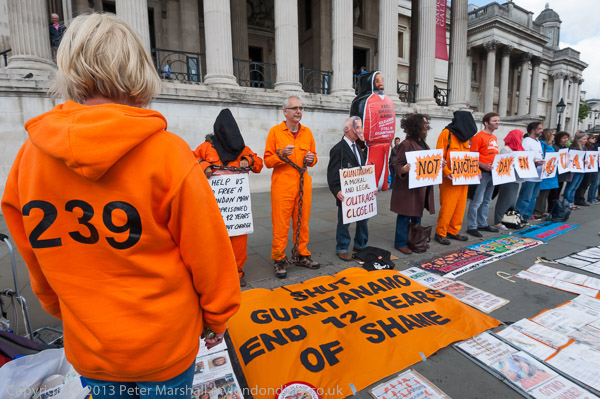
A year after President Obama again pledged to close Guantánamo, activists in black hoods and orange jumpsuits in London and 40 other cities reminded him of yet another broken promise and called for the urgent release of Londoner Shaker Aamer – prisoner 239. The protest in London was part of an international day of action coordinated by the US organisation Witness Against Torture.
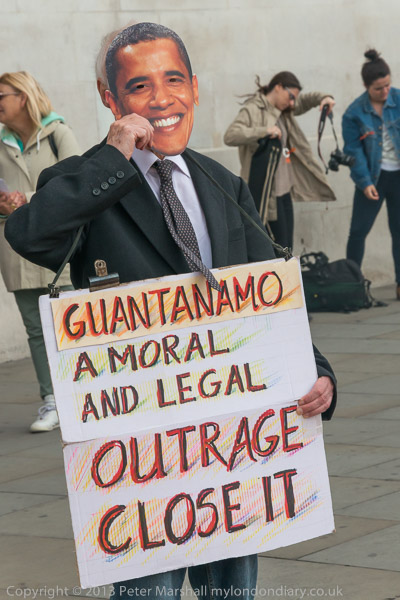
In the year since Obama made the promise only 12 prisoners have been released and 154 remain, subjected to appalling conditions, beatings and daily abuse of their human rights. Former London resident Shaker Aamer’s family in Battersea include a son born a few months after his capture by bandits in Afghanistan. He was one of the first transferred to Guantanamo and has been there over 12 years, despite having been cleared more than once for release.
More at Obama keep your promises.
Defend UoL Garden Halls workers – Senate House, University of London
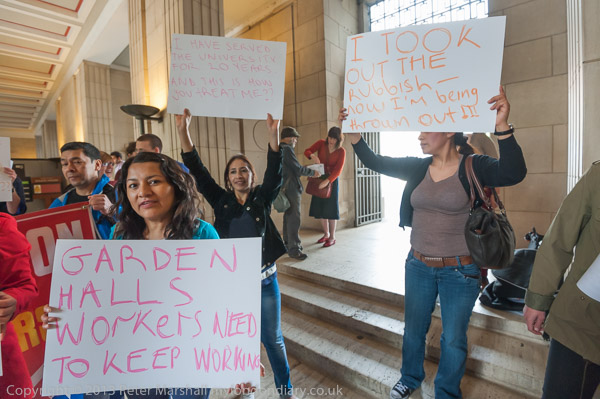
The IWGB trade union protested at Senate House, the headquarters building of the University of London demanding proper consultation and negotiation over the redundancies of 80 workers at the University of London’s Garden Halls in Bloomsbury.
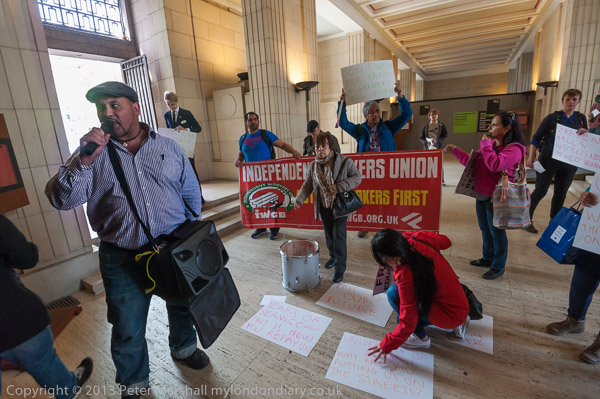
Those under threat of losing their jobs include porters, cleaners and security guards and include many of those who are active in the continuing struggle for proper sick pay, holidays and pensions in the ‘3 Cosas’ campaign at London University.
Although most of the workers are members of the independent union, the Independent Workers of Great Britain, both the University and its contracted employer Cofely refuse to talk with the IWGB and recognise instead more compliant traditional unions with few if any members among the workers. The IWGB states “many of these workers have been at the University of London for decades” and “the University bears responsibility for the treatment of these workers, regardless of the fact that their roles are contracted to private companies.”
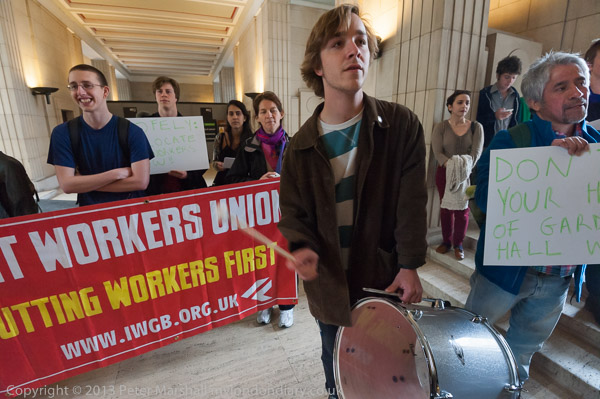
The lunchtime protest was a noisy one with with workers using a megaphone, drums, whistles and shouting to make their demands heard. They intend to come back every Friday until the end of term or until management engages in meaningful talks over the issues.
More at Defend UoL Garden Halls workers.
Oromo and Ogaden against Ethiopian killings – Old Palace Yard, Westminster
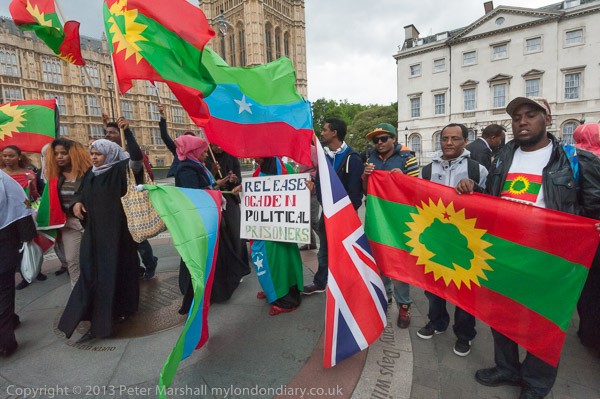
Oromo and Ogaden National Liberation Front supporters had come to protest opposite Parliament over the Ethiopian government’s killing of Oromo university students peacefully protesting the grabbing of Oromo land and calling for the release of political prisoners.
There are around 30 million Oromo living in Ethopia and adjoining areas of Somalia and they are the Largest ethnic group in the country; their language is Africa’s third most widely spoken. There were a number of democratic kingdoms in the area before they were conquered in the late nineteenth century by Abyssinian emperor Menlik II, aided by the European colonial powers and their modern weapons. Around half the Oromo are said to have been killed in these wars and since then successive regimes have made determined attempts to destroy Oromo identity – its language, culture, customs and traditions.
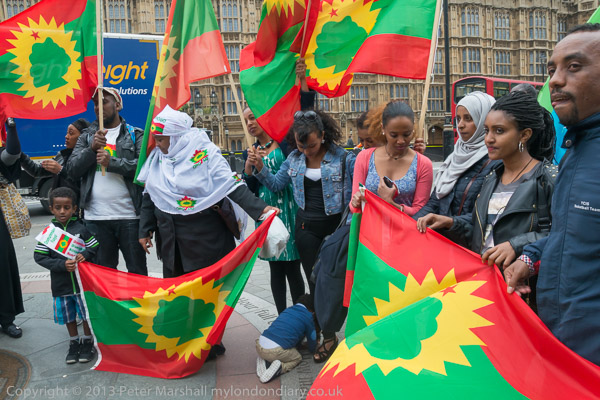
This oppression continues, now with the help of the US government who since 9/ll have worked with the Ethopian government as part of their worlwide fight against “terrorism”, according tto BBC Newsnight and and the Bureau of Investigative Journalism “using billions of dollars of development aid as a tool for political oppression” with programmes of deliberate starvation of communities, and “of mass detentions, (and) the widespread use of torture and extra-judicial killings.“
More at Oromo and Ogaden against Ethiopian killings.
Support Hunger Strike in Israeli Jails – G4S HQ, Victoria St
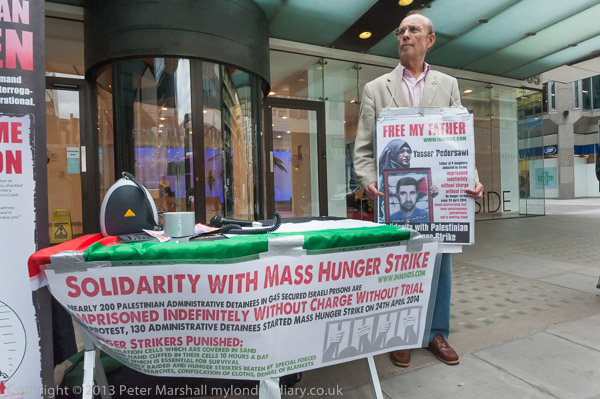
Protesters outside the London HQ of security firm G4S supported the mass hunger strike by Palestinians demanding an end to Israels’s illegal policy of rolling Administrative Detention which can jail them for years without charge or trial in prisons which G4S secures.
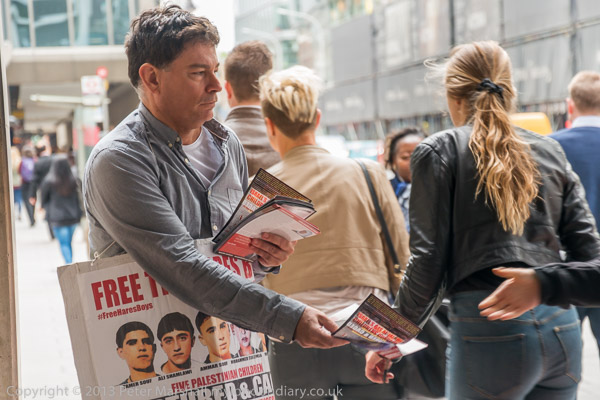
The hunger strike by Palestinian prisoners had begun a month earlier with 134 detainees taking part. Israel uses administrative detention to imprison Palestinians indefinitely without charge or trial, using rolling detention orders of 1-6 months which are renewable indefinitely in defiance of international law.
The detention orders are based on “secret evidence” which neither those detained or their lawyers have any right to see, and in the years up to 2014 there had been around 2000 made each year. Those given them include 9 Palestinian MPs. Often when released from one order detainees are immediately re-arrested on another.
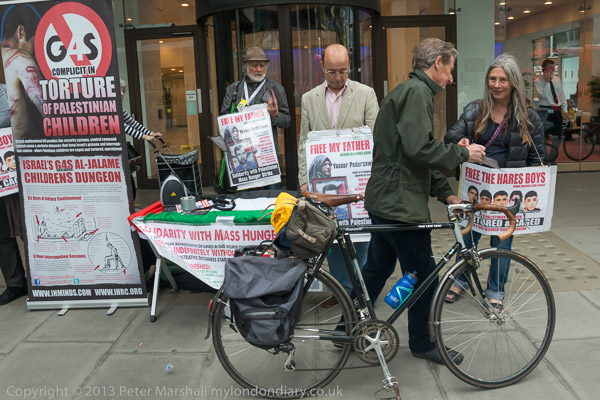
Those taking part in hunger strikes included 34 years old Ayman Al-Tabeesh who has spent over 10 years in Israeli prisons. He began his second hunger strike in February 2014 and 70 days later had lost over 25kg; at the time of this protest he had been advised after 85 days that he was at grave risk of a heart attack. His brother had sent a message of support to the protesters for their earlier protest in support of the hunger strikers stating “We need you to tell the international community of Israel’s criminal brutality against our prisoners, the violation of their rights. The occupations illegal never ending administrative detention orders is nothing less than a slow death for Palestinian prisoners.”
More at Support Hunger Strike in Israeli Jails.
Solidarity with Ukrainian Miners – Holborn
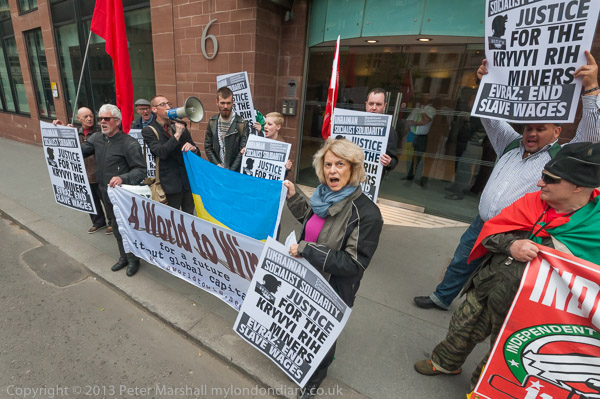
A protest outside the registered offices of London mining company Evraz, owned by Russian Oligarchs Roman Abramovich and Alexander Abramov, supported miners in the Independent Union of Miners of Ukraine who had ensured peace and unity at Kryviy Rih and were striking to maintain real wages.
Kryviy Rih is a city in south-east Ukraine, at the centre of the largest steel industry in Eastern Europe with a population of around three-quarters of a million people. Protests there in 2014 demanded “Putin, Get Out!” and supported the Ukrainian government against the Russian separatists in Ukraine, with the Independent Union of Miners of Ukraine organising to defend the protests there.
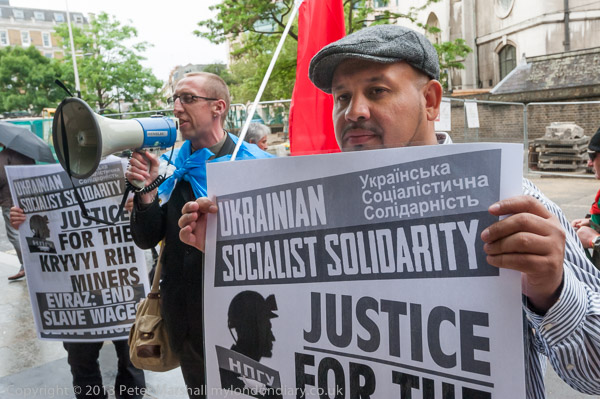
The miners were striking for a doubling of wages to meet the rapid rise in the cost of living which has meant a 30-505 drop in real wages. They were angered after a 20% increase promised the previous month was not paid. The Miner’s union state “We are deeply convinced that the main cause of the destabilised situation in the country is the greed of Ukrainian and Russian oligarchs, who pay a beggar’s wage to workers, send all their profits off-shore and don’t pay taxes in Ukraine. In fact the oligarchs are almost completely exempt from taxes on their profits.”
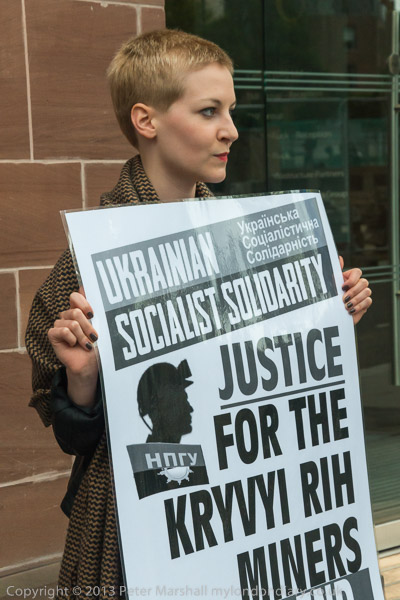
On 11th May 2014 the miners had marched through the streets of Kryvyy Rih to protest at the offices of the mining company EVRAZ and had called for support in London where the company, owned by Russian Oligarch Roman Abramovich, along with his business partner Alexander Abramov, is based. The protest in Holborn was one of a number including at the registered office of the company in the City of London, at Chelsea Football Ground and elsewhere. This year, after the Russian invasion of Ukraine the British government accused the company of “providing financial services or making available funds, economic resources, goods or technology that could contribute to destabilising Ukraine” and after sanctions were applied to Abramovich the trading of Evraz shares on the London Stock Exchange was suspended.
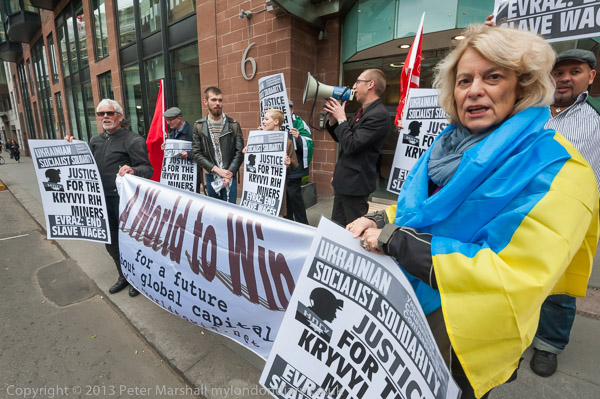
In April 2022, Russian forces were around 60km from the city, but the ArcelorMittal Kryvyi Rih steel plant which had closed down all of its four blast furnaces at the start of the Russian invasion restarted production with one furnace in early April, though hampered by the loss of around 94% of their staff to military duties or by evacuation.
More at Solidarity with Ukrainian Miners.
